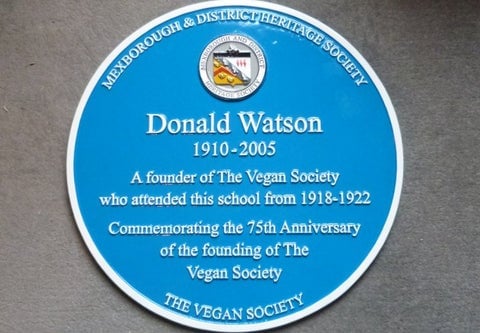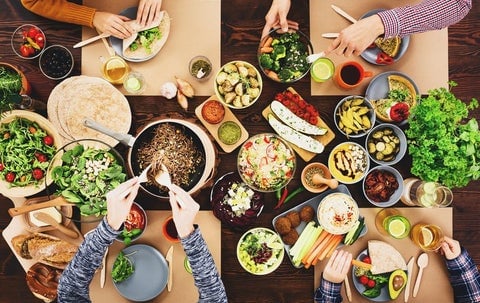The History Of Veganism
You might think that veganism was invented by trendy millennials, keen to adopt a lifestyle that would help mitigate climate change and ecological catastrophe, but you’d be wrong. Veganism actually has a rich and distinguished history, even stretching back as far as 500 BC.
Pythagoras of Samos – the mathematician and philosopher famous for his theorem regarding triangles and right angles – promoted benevolence among all species in his writings, an idea that was shared by early followers of Buddhism, Hinduism, and Jainism. The concept cropped up sporadically over the next 2,500 years, but it wasn’t until the mid-19th century that the idea gained more widespread appeal.
The first vegetarian society was formed in the UK, in 1847; three years later, the American Vegetarian Society was created. The idea of completely foregoing eggs, dairy products, or even leather remained on the fringes however, until a British woodworker named Donald Watson announced the creation of new term, “vegan”, to describe people who did. Partly, this was inspired by a health crisis among the UK’s dairy cows; tuberculosis had been found in 40% of them the year before, and so Watson’s new group, The Vegan Society, was promoted as protecting people from tainted food.

By the time of his death in 2005, it was estimated that there were over 250,000 vegans in the UK, and two million in the US. They practice a simply philosophy – use no animal products whatsoever. “To seek an end to the use of animals by man for food, commodities, work, hunting, vivisection, and by all other uses involving exploitation of animal life by man” runs the official definition. But while cutting out animal products from your diet is relatively straightforward, strict vegans must find alternatives to a whole host of clothing, household items, and toiletries.
Naturally, leather is verboten, as is fur, duck down, and even silk. Many common toiletries and cleaning products contain animal products, which has promoted a rise in alternatives. Honey is off the menu too, and even many beers and wines are not suitable for vegans, often containing trace elements of gelatine or isinglass. Medicines are another complex issue; certain vaccines are grown in animal eggs, and any form of previous testing on animals is considered problematic.

There’s even such a thing as “vegan” fruit and vegetables. A lot of produce, even from organic farms, are grown with the help of animal manure as a fertilizer; to qualify as vegan, growers use nothing more than plant compost.
Whilst expert opinion on the health benefits of strict veganism are split, there’s no doubt cutting down on the amount of meat and animal products one consumes is better for the body. Such an approach is also hugely beneficial for the environment. It certainly pays to consider the impact of the food we eat and the products we use – see the rise in popularity of Meatless Monday, as just one example.
At Buffalo Market, we understand that one’s diet is a hugely personal choice. We carry plenty of delicious food for vegans and those who seek to consume fewer animal products, for whatever reason. Why not have a browse, and add some to your cart today?

